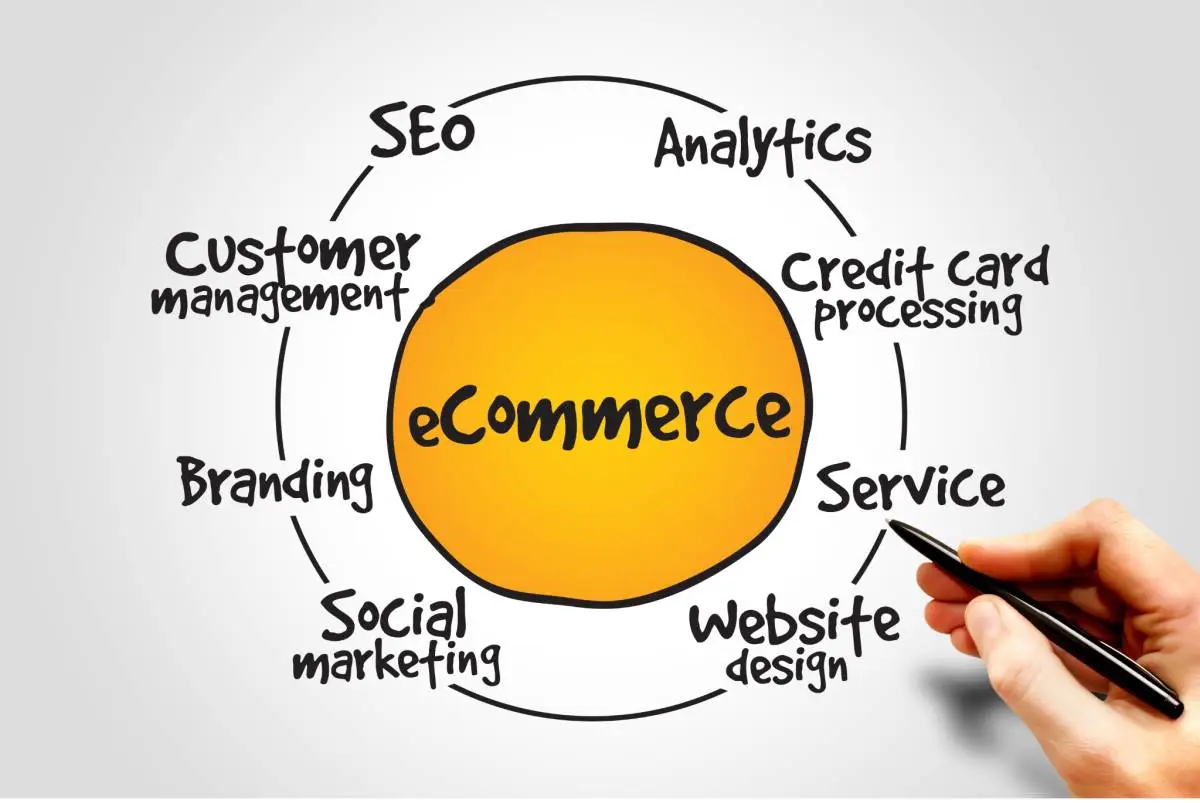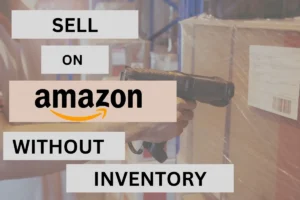In today’s digital age, having an online presence is essential for any business that wants to grow and reach a wider audience. With eCommerce platforms and tools, businesses of all sizes can set up their online stores and reach customers around the world.
However, with so many eCommerce tools available, it can be overwhelming to choose the right ones for your business.
In this article, we will explore some of the best eCommerce tools that can help you grow your business, increase sales, and improve customer satisfaction.
Whether you are just starting or looking to improve your existing eCommerce strategy, these tools are sure to provide value and help you achieve your business goals.
What are eCommerce Tools?

E-commerce tools are software solutions that are designed to help online sellers manage various aspects of their business. These aspects include order processing, shipping and fulfillment, product research, inventory management, marketing, payment processing, and more.
E-commerce tools are critical for sellers looking the grow their business and boost online sales because they provide the necessary infrastructure to streamline operations, increase efficiency, and improve profitability.
Importance of Choosing the Right eCommerce Tools
There’s a popular saying that goes thus: “A man is only as good as his tool”. This holds true for both man and business. As an eCommerce business owner, your store will only be as good as the tools you use. Hence, choosing the right tools is crucial for any eCommerce business.
Here are some reasons why it is important to choose the right eCommerce tools:
1. Efficient Product Research
eCommerce tools can help businesses research and find profitable products, identify potential competitors, and analyze market trends.
With the right tools, businesses can save time and money by focusing on products that have high demand and are profitable.
2. Effective Inventory Management
eCommerce tools can help businesses manage their inventory more efficiently by tracking stock levels, identifying slow-moving products, and automating reordering processes.
This can help prevent stock shortages and overstocking, which can both be costly and negatively impact customer satisfaction.
3. Accurate Pricing and Repricing
eCommerce tools can help businesses set and adjust prices for their products based on market trends and competition.
This can help ensure that prices are competitive and profitable, while also attracting and retaining customers.
4. Improved Customer Experience
eCommerce tools can help businesses improve the customer experience by providing fast and accurate order processing, timely shipping and delivery, and effective customer service.
This can help build customer loyalty and increase sales.
5. Increased Profitability
By using the right eCommerce tools, businesses can streamline their processes, reduce costs, and increase efficiency, leading to higher profitability in the long run.
Criteria for Choosing eCommerce Tools for Sellers
When it comes to choosing e-commerce tools for sellers, there are several key factors to consider. Here are some of the most important criteria to keep in mind:
Functionality
The first thing to consider is whether the e-commerce tool has the functionality you need to manage your business effectively. This will depend on your specific needs and the type of products you sell.
For example, if you sell on multiple marketplaces, you may need a tool that can integrate with all of them and centralize your inventory management. If you sell private label products, you may need a product research tool that can help you identify profitable products to sell.
User-Friendliness and Ease of use
It’s important to choose eCommerce tools that are user-friendly and easy to navigate. Look for tools with intuitive interfaces and clear documentation that will help you get up and running quickly.
Cost
Consider the cost of the eCommerce tool, both in terms of the initial investment and ongoing maintenance fees. Make sure you understand the pricing structure, including any hidden fees or additional costs for features you may need in the future.
Customer Support
Choose eCommerce tools that offer reliable customer support, preferably with a dedicated support team or knowledge base. You’ll want to be able to reach out for help if you encounter any issues or have questions about how to use the tool.
Integration with Other Tools
Check to see if the eCommerce tool you’re considering can integrate with other tools you already use or may need in the future. This can save you time and effort in managing your business and may help you avoid the need for multiple tools that don’t work together.
Reviews and Reputation
Read reviews of the eCommerce tools you’re considering to get a sense of what other users think about the tool. Look for reviews from sellers who are in a similar niche or have similar needs to your own.
Updates and Development
Consider how frequently the eCommerce tool is updated and developed. You want to choose a tool that is actively maintained and improved over time, rather than one that may become outdated or unsupported.
Frequent updates also show that the developers of the software are particular about providing quality services that are relevant at all times.
9 Best eCommerce Tools For Sellers
The following are the top nine (9) eCommerce tools that we recommend for online business owners. These tools were selected based on the criteria we highlighted above.
1. Ecom Circles
Designed to combat the complexities of selling online, Ecom Circles offers businesses of any size everything they need to succeed with the Ecom Circles Dropshipping software.
With this powerful platform, you can streamline your operations with ease. This tool provides Amazon and Walmart sellers with a variety of services including automated order processing, inventory management, automated repricing, automated stock and price updates, an easy-to-read dashboard that tracks your metrics, and automated shipping tracking. This tool provides all you need in one place.
Furthermore, the software is designed for scalability and growth as your business continues to expand. With its advanced features like multi-channel management, you can easily add and integrate new sales channels.
Overall, Ecom Circles is secure, easy to use, and backed by customer service teams that are available 24/7. With Ecom Circles, you can rest assured that your business is in good hands.
2. KalDrop
KalDrop is a powerful dropshipping software that can help eBay sellers manage their stores more efficiently. The tool can automatically process your orders from eBay and send them to your suppliers, can automatically adjust the prices of your listings, and it offers inventory management as well as product sourcing features.
KalDrop supports a wide range of suppliers including AliExpress, Alibaba,
3. Shopify
Shopify is one of the most popular e-commerce website builders on the market, and for good reason.
It offers a wide range of customization options and features, including more than 100 free and paid themes, a powerful shopping cart, payment gateway integration, and the ability to sell products on multiple channels (including social media).
Shopify is also very user-friendly, making it a great choice for beginners.
3. ShipStation
ShipStation, another popular eCommerce tool, helps streamline the order fulfillment process for online retailers.
Backed by advanced technology, the platform makes it easier to manage orders, track shipments, print labels and generate reports.
ShipStation also features a mobile app that makes order management a breeze. This helps you easily keep track of shipments and orders, check order status, and more – wherever they are!
Overall, ShipStation is a powerful tool for online sellers who need to make their order fulfillment process faster and easier. Using the platform’s automation tools, entrepreneurs can save time, money and workforce logistics, enabling them to concentrate on their core competencies.
4. Help Scout
Help Scout; a cloud-based customer service software is an excellent tool for any online seller.
Using Help Scout’s intuitive interface, retailers can manage customer communication, track and resolve customer issues, create automation, and more.
Help Scout also features a comprehensive set of tools to help your team organize and automate customer interactions.
By doing this, you’ll be able to maximize customer satisfaction and efficiency while developing lasting customer relationships. This can ultimately lead to increased positive customer reviews.
Assisting over 12 thousand businesses worldwide, Help Scout is the ultimate customer service platform to add to your eCommerce arsenal.
As a result, Help Scout is a fantastic tool for managing customer service alongside other tools in your arsenal.
5. Mailchimp
Email is one of the marketing channels you can employ to reach out to loyal customers and this tool offers a way out for online sellers.
Mailchimp, a popular email marketing tool, allows businesses to create and send email campaigns to their email list of subscribers. It offers a range of features, including customizable templates, email automation, A/B testing, and analytics.
This email marketing software is easy to use and can be integrated with other e-commerce platforms, such as Shopify and WooCommerce. It is a good tool for eCommerce businesses that want to integrate email marketing campaigns into their advertising.
6. Hootsuite
Hootsuite is a social media management tool that allows businesses to manage multiple social media accounts from a single dashboard. It offers a range of features, including social media scheduling, publishing, monitoring, and analytics.
Hootsuite also integrates with other e-commerce marketing tools, such as Mailchimp and Google Analytics. Hootsuite is a great eCommerce tool for businesses that are particular about social media marketing. It eases your campaigns and improves your reach.
7. Google Analytics
Google Analytics can be a very useful eCommerce tool for businesses. In fact, it is one of the most widely used analytics tools for eCommerce businesses, as it offers a wealth of data, insights, and real-time analytics that can help businesses optimize their online stores and marketing strategies.
With Google Analytics, eCommerce businesses can track the number of visitors to their website, where they came from, how long they stayed, and which pages they visited.
Google Analytics can also provide valuable insights into customer behavior, such as demographics, interests, and preferences. This information can be used to create more targeted marketing campaigns, personalize website content, and improve customer engagement and loyalty.
8. Ahrefs
Ahrefs is a powerful SEO tool that provides a wide range of data and insights that can help e-commerce businesses improve their website’s search engine rankings, attract more organic traffic, and increase conversions.
With Ahrefs, eCommerce businesses can identify the most relevant and profitable keywords for their products and services.
By analyzing search volumes, competition, and ranking difficulty, businesses can optimize their website content and product listings for the keywords that are most likely to attract high-converting traffic.
Ahrefs can also come in handy when eCommerce businesses decide to venture into content marketing as part of their marketing campaigns. It has features like a keyword planner, content explorer, and so much more.
9. Social Media Platforms
Social media platforms have become an essential tool for eCommerce businesses to market their products, engage with customers, and improve conversion rates. Let’s explore some of the top platforms and their key features:
1. Facebook: With over 2.8 billion monthly active users, Facebook provides a vast audience for eCommerce businesses. It offers various features like targeted ads, Facebook Shops, and groups to connect with potential customers and boost sales.
2. Instagram: Known for its visual appeal, Instagram is a popular platform for eCommerce businesses that focus on visual products. Features like shoppable posts, Instagram Stories, and influencer collaborations help businesses promote their products effectively.
3. Twitter: Twitter allows businesses to engage with customers through real-time conversations. It is a platform to share updates, offers, and customer support. Hashtags and trend monitoring feature helps businesses reach a wider audience and increase brand visibility.
4. Pinterest: Ideal for businesses with visually-driven products, Pinterest offers a unique way of inspiring and capturing customer interest. Its Pin feature allows businesses to showcase products, and the algorithm-driven smart feed helps reach potential customers.
Final Thoughts
As we mentioned earlier, choosing the best eCommerce tools is crucial for scaling your online business. With the right tools, you can streamline your business operations, improve customer experience, and increase sales.
It is important to do your research and choose the tools that are the best fit for your business size, budget, and goals. By investing in the right eCommerce tools, you can take your online business to the next level and stay ahead of the competition.
At Ecom Circles, our goal is to assist you in finding the right tools and resources to run your online business. By integrating the right eCommerce tools, you can create a powerful infrastructure that will streamline operations and improve profitability.
To learn more about which eCommerce tools are right for you, book a call with our team today. We’d be happy to assist you in finding the perfect solution!






